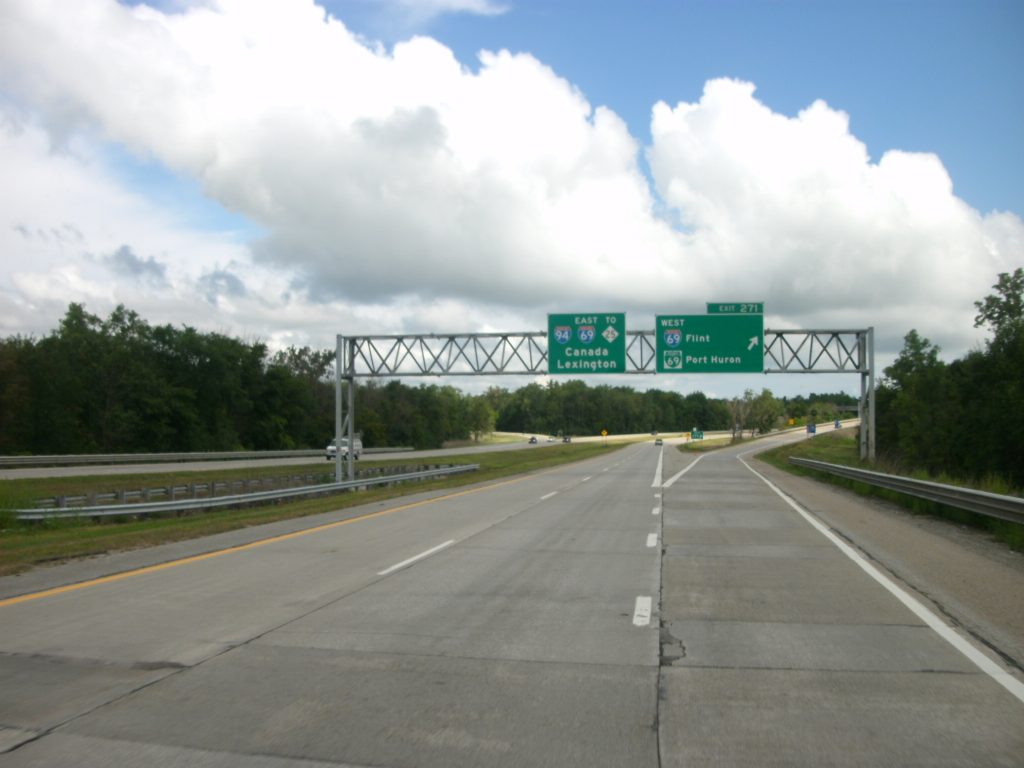Is There a Plan B, C or D for Road Funding? [Map]
Do counties have a back-up plan if Proposal 1 fails?

The vote for Proposal 1 takes place Tuesday.
The Michigan ballot initiative calls for raising the state’s sales tax from 6 to 7 percent to generate an additional $1.2 billion in road funding. Some polls suggest the chances of the measure succeeding are slim.
So, WDET’s Bre’Anna Tinsley looked into whether local counties have a Plan B for road funding if Proposal 1 fails.
Road ownership is generally split into three jurisdictions—state, county,and municipal roads.
For most of the state, passage of Proposal 1 would mean a boost in funding for projects already in place.
The Michigan Department of Transportation has a five-year plan that maps out future road construction. Metro Region Deputy Engineer Matt Chynoweth says Proposal 1 could help accelerate projects that were left on the back burner because of inadequate funding.
“If proposal 1 passes we will be going into the five-year plan and see what projects maybe will be able to be advanced,” Chynoweth says. “Or we may, you know, projects that aren’t even in the five year plan due to costs, we would investigate bringing those into the five year plan with the additional funding.”
But, Chynoweth says there isn’t a Plan B if the ballot initiative fails.
And the same is true for most counties in Michigan. Ed Noyola is the Deputy Director for the County Road Association of Michigan. He says if there was a Plan B, the state legislature would have already considered it.
“This is Plan C, D, and E: what’s on the table right now before the public. To come up with another solution for something that’s been lingering for over ten years, you would have thought that would have been handled by now. If there truly was an alternative at the legislative level, it hasn’t made its way through any committee.
-Ed Noyola, Deputy Director for the County Road Association of Michigan
Officials in some counties say the roads will only continue to get worse if more money is not allocated.
Craig Bryson is with the Road Commission for Oakland County. He says if the ballot does not pass, the percentage of roads in the county designated as “poor” will rise to 66 percent by 2020. That’s two-thirds of the road system.
“We don’t have any control over the funding, so we will just continue to operate with the existing revenue stream,” Bryson says. “The problem is, we know at current funding levels the condition of our road levels continues to deteriorate every year, and we are falling further and further behind.”
The Coalition Against Higher Taxes and Special Interests Deals is one of the main organizations against Proposal 1. Executive Director Randal Thompson says reducing costs in one area to increase road funding makes more sense than raising taxes.
“You have to clean up your own house, where can we cut the fat, why do we have to increase taxes to 1.2 billion dollars to just cover the roads. If you reduce cost of fix tax credits or reduce costs from you know unnecessary spending, prioritize spending, saying is the roads more important than this, is the state of our roads more important than that?”
-Randal Thompson, Executive Director of the Coalition Against Higher Taxes and Special Interests Deals
Thompson says there are five different plans in legislature that have been proposed that would be better fits than the ballot initiative.
The vote on Proposal 1 takes place May 5.
